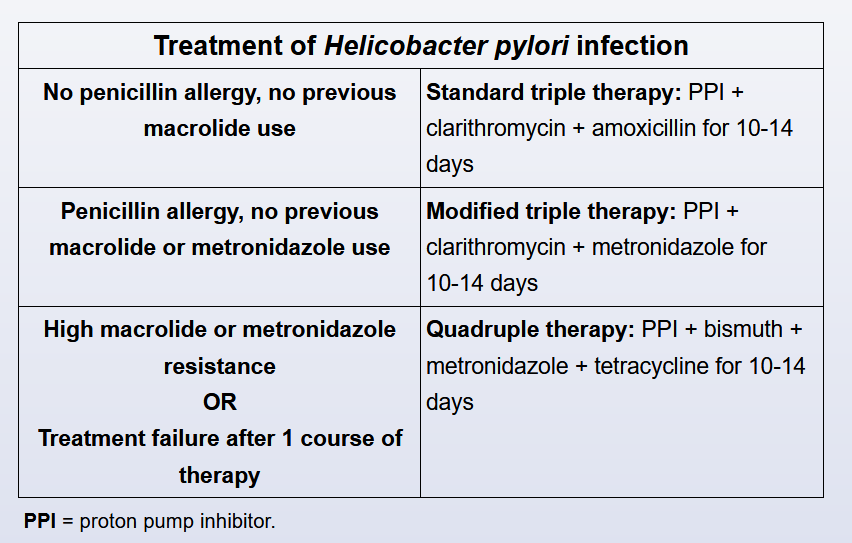H pylori

Helicobacter pylori eradication should be confirmed for patients with the following:
- persistent symptoms
- H pylori-associated ulcer on endoscopy
- evidence of an H pylori-associated malignancy (eg, mucosa-associated lymphoid tissue lymphoma).
Common methods for determining bacterial eradication include urea breath testing and fecal antigen testing. Testing should occur >4 weeks after the completion of therapy. If testing confirms eradication but symptoms remain, other etiologies should also be considered. In patients who do not clear the infection after first-line therapy, second-line options such as quadruple therapy or sequential therapy involving distinct antibiotics should be used.
To maximize the accuracy of testing to confirm eradication, testing should be performed a minimum of 4 weeks after completion of H. pylori eradication therapy and after proton pump inhibitor therapy has been discontinued for 1 to 2 weeks and H2-blockers for 1 to 2 days. The test chosen should be highly accurate in identifying active infection; appropriate tests include the urea breath test, fecal antigen test, or biopsy-based testing. The urea breath test is limited by need for specialized equipment and personnel and by its cost. The fecal antigen test is limited by the collection of stool but is less expensive than the urea breath test. Biopsy-based testing is expensive and invasive. Unless upper endoscopy is indicated for other reasons, noninvasive testing modalities (the urea breath test or the fecal antigen test) are more appropriate for confirmation of eradication or assessment for reinfection. Both testing modalities are equivalent with regard to accuracy; therefore, the specific test chosen should be based on patient preference and/or test availability.